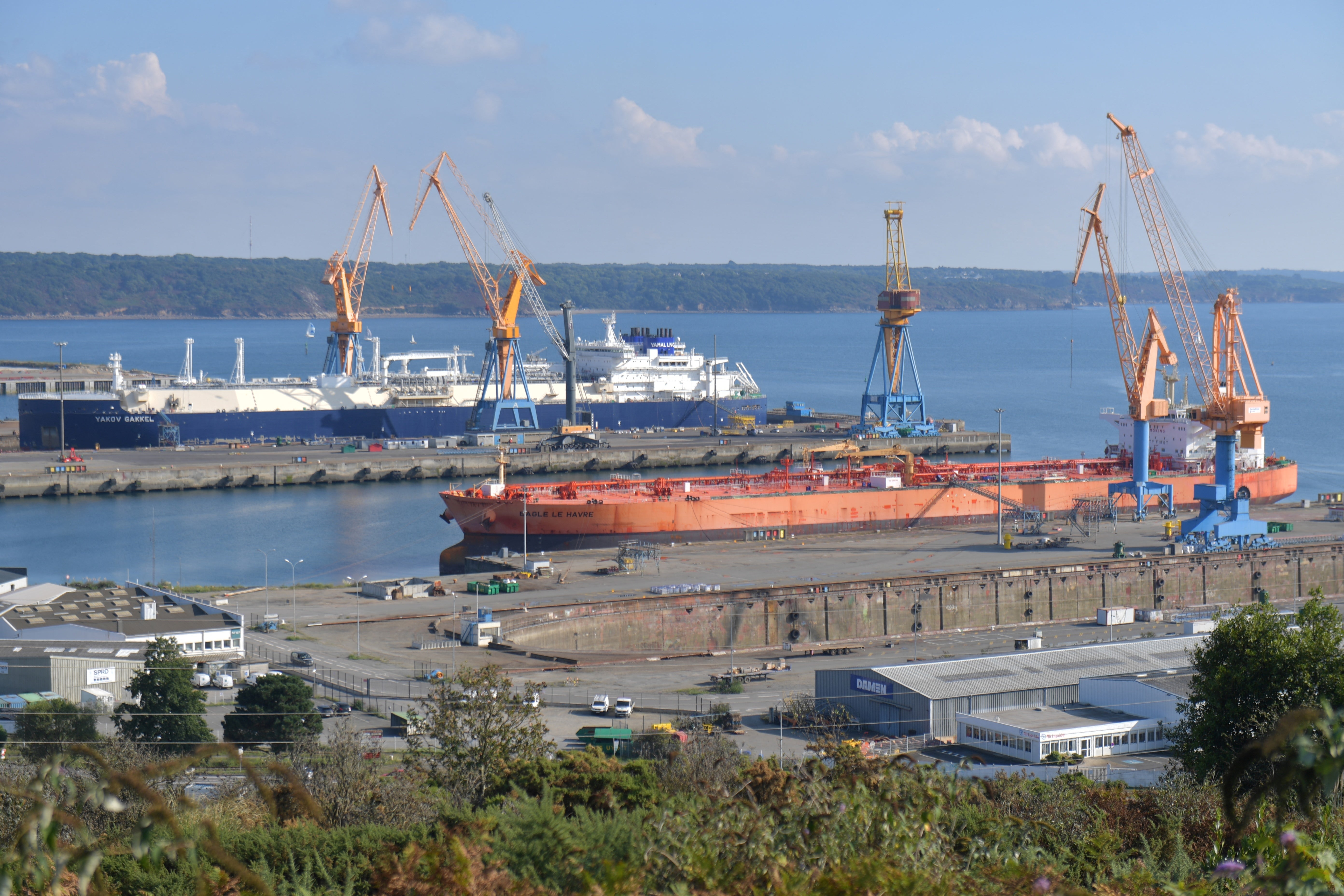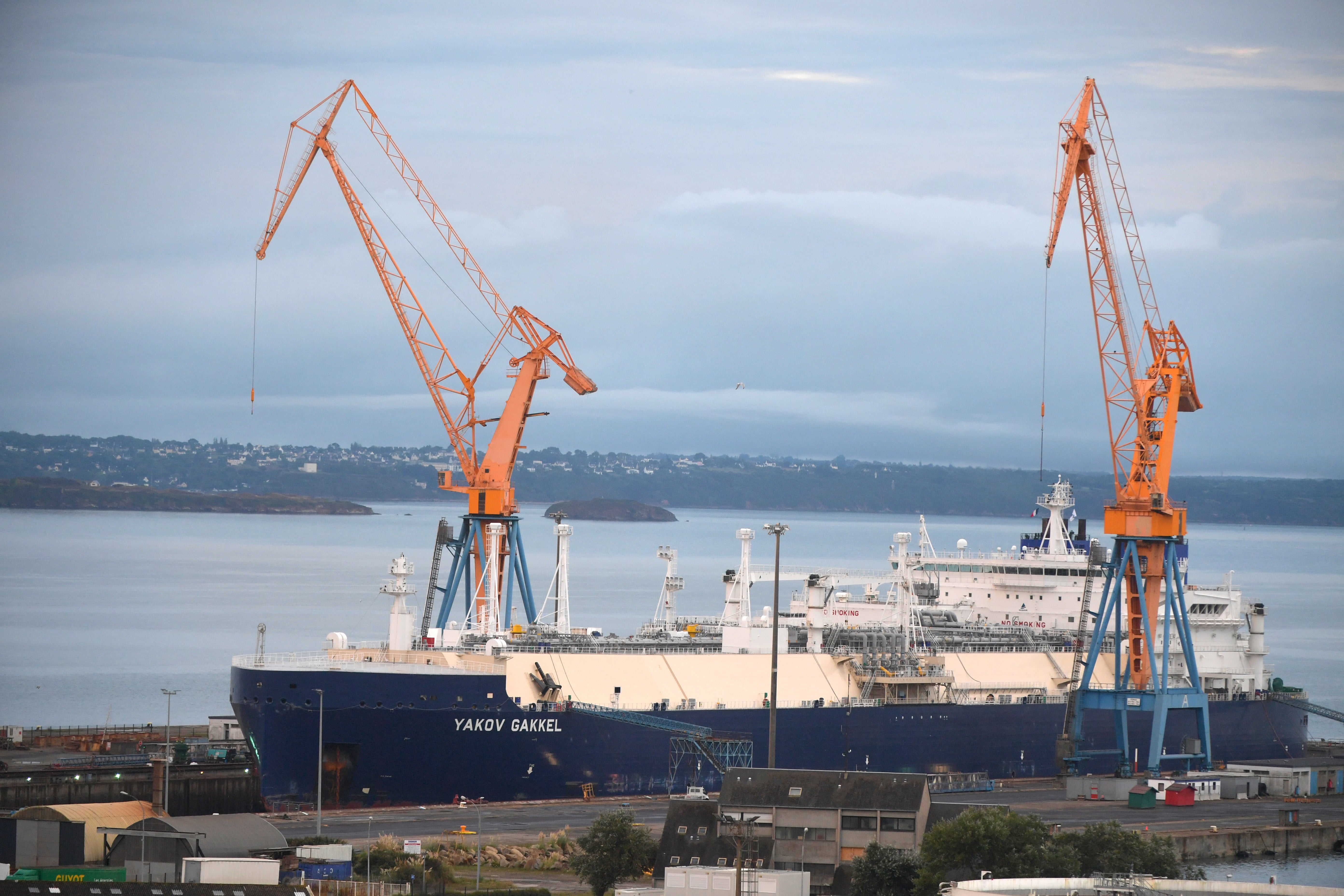French and Danish shipyards ‘fixing Russian gas tankers’
Damen shipyard in Brest, France, and Fayard A/S in Denmark have provided maintenance works to Russian liquefied natural gas (LNG) tankers

Your support helps us to tell the story
From reproductive rights to climate change to Big Tech, The Independent is on the ground when the story is developing. Whether it's investigating the financials of Elon Musk's pro-Trump PAC or producing our latest documentary, 'The A Word', which shines a light on the American women fighting for reproductive rights, we know how important it is to parse out the facts from the messaging.
At such a critical moment in US history, we need reporters on the ground. Your donation allows us to keep sending journalists to speak to both sides of the story.
The Independent is trusted by Americans across the entire political spectrum. And unlike many other quality news outlets, we choose not to lock Americans out of our reporting and analysis with paywalls. We believe quality journalism should be available to everyone, paid for by those who can afford it.
Your support makes all the difference.European shipyards are repairing Russian gas tankers, enabling Moscow to keep energy supplies moving through the Arctic and avoid Western sanctions, according to reports.
Damen shipyard in Brest, France, and Fayard A/S in Denmark have provided maintenance works to Russian liquefied natural gas (LNG) tankers, allowing them to access crucial markets through winter, the Financial Times reported. A loophole in European Union sanctions means maintenance can be carried out there.
Satellite images and port-call tracking data from data and analytics firm Kpler, seen by the FT, showed that the two shipyards have serviced 14 of the 15-ship fleet of specialist Arc7 tankers that sail from Yamal LNG on Russia's far northern coast.
The activities of the ships and yards are not covered by sanctions because of loopholes for non-Russian flagged vessels and exemptions for technical expertise and maintenance from European companies.
Malte Humpert, an Arctic shipping specialist at High North News, told the publication: “If those two shipyards were off-limits, it would put the whole logistics operations in doubt.
“They could get the service somewhere else but that would mean going well off their route.”
Russia relies on oil and gas business in part to fund its ongoing war in Ukraine; with revenues accounting for 30 to 50 per cent of the Russian federal budget, according to The Oxford Institute for Energy Studies (OIES). Other than the EU, Russia’s biggest pipeline gas exports go to Turkey and Belarus, while LNG exports are largely reliant on sales to China and Japan.

Although the EU has banned oil imports from Russia, numerous reports suggest that Russian oil is still reaching the EU.
A Global Witness investigation found that 130 million barrels of refined products were imported into the EU from refineries that process Russian crude oil in 2023, worth an estimated €1.1bn in tax revenue to the Kremlin.
Russia is the largest crude oil supplier to China and India. The UK and EU countries import billions in refined oil from these two countries, part of which is likely originating from Russia despite sanctions.
Damen shipyard in France confirmed to the FT it had repaired “several vessels involved in the transport of Russian LNG” but added that this “strictly adhered to European sanctions legislation” and that it was “not involved in the cargo choices made by the shipping companies operating these vessels”.
Fayard has yet to comment.
The Arc7 LNG carriers were built in South Korea, costing around $333million (£274million) per ship, according to research by the Oxford Institute for Energy Studies.
European countries’ reliance on Russian gas has been a difficult challenge to address.
Russia has historically used its gas pipeline exports to exert political control over dependent countries, from Ukraine to Armenia.
Russia’s gas flows to Europe ended at the start of the year after the expiration of a transit agreement between Kyiv and Moscow. Ukraine refused to extend the deal, seeking to stop energy revenue going to Moscow to fund its nearly three-year invasion. Fico says the move has damaged Slovakia’s economy.
Join our commenting forum
Join thought-provoking conversations, follow other Independent readers and see their replies
Comments